Book Digest: May 7, 2007
The recent brouhaha regarding the Atlanta Journal-Constitution’s decision to downsize by eliminating the book editor’s position (currently held by the well-regarded Teresa Weaver) is a curious thing. It did send a ripple of indignation through the book reviewer and author community, and occasioned some mainstream (as opposed to self-serving) attention to disappearing newspaper book review space. And even more usefully, there has been some interesting public conversation on this matter—my favorite being Pat Holt’s contrarian opinion at her valuable site, Holt Uncensored.
Michael Connelly, former journalist and bestselling crime-story writer weighed in with some heartfelt, astute, and non-self-interested thoughts, and thus I feel the need to offer my dos pesos.
In general, newspapers took a stridently defensive stance with the first wave of blogs, attacking them as amateurish and thus unprofessional—not exactly the same thing. Now, of course, most newspapers have included an array of blogs, part of various desperate strategies to staunch bleeding reader numbers. There is not much to generalize from these efforts except that I would be surprised if a significant number of these corporately mandated sites has much in the way of originality, passion, and integrity—as for instance the people like Ed Champion, Maud Newton, and Mark Sarvas—who are quoted in the Times article.
That news has been commodified—or, as a friend who hipped me to a word with which I was unfamiliar would say, “monetized”—has not been a good thing for newspapers (as it was not a good thing for general-interest magazines before them), who have been chasing readers, especially and unsuccessfully the younger ones. Somehow “priceless”—which is what reading is about—has been reduced to “worthless.” Go figure.
The hue and cry about the changes at the Los Angeles Times and the San Francisco Chronicle and the Chicago Tribune—and yes, the Journal-Constitution is in fact not about a dire situation, but more like a cry of pain from the community directly affected. Writers, publishers, and some literary journalists will have to do some work to figure out who the new gatekeepers are, if there are any. In any case, don’t worry, you will always have your friends here at The Morning News to aid and comfort. Apropos of a couple of things on my mind, here’s Kurt Vonnegut: “Any reviewer who expresses rage and loathing for a novel is preposterous. He or she is like a person who has put on full armor and attacked a hot fudge sundae.”
A Tranquil Star: Unpublished Stories of Primo Levi by Primo Levi, translated by Ann Goldstein and Alessandra Bastagli
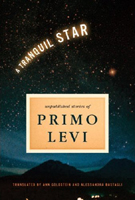
These 17 stories by Primo Levi—of whom Saul Bellow admired, “In Levi’s writing, nothing is superfluous and everything is essential”—have never before been published in English. That, of course, is sufficient cause to take note of them.
I’ll Sleep When I’m Dead: The Dirty Life and Times of Warren Zevon by Crystal Zevon
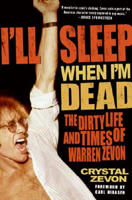
Were I to stoop to the American penchant for list-making and “top ten” fabricating, my pantheon of top five (American) contemporary songwriters would be Bob Dylan, Smokey Robinson, Leonard Cohen, Curtis Mayfield, and Warren Zevon. And as for a list of Zevon’s very best songs… “Excitable Boy,” “Werewolves of London,” “Lawyers, Guns, and Money,” “Mr. Bad Example,” “Life’ll Kill You,” “Gorilla, You’re a Desperado”—it is a long list. Zevon never achieved the stature of Springsteen or Dylan, but he undoubtedly influenced and was appreciated by musical heavyweights like those two. Crystal Zevon, his longtime co-conspirator, compiles 80-plus interviews to paint an unsparing and compelling picture. Zevon, who died a few years ago at the age of 53, wrote a fitting funereal ditty, “Keep Me in Your Heart”:
McSweeney’s Issue 23
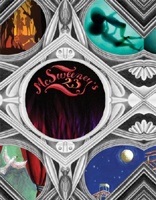
It would not be a surprise to me if Dave Eggers was one day awarded Iceland’s highest civilian honor for his seemingly huge contribution to that nation’s domestic coffers. McSweeney’s Quarterly, McSweeney’s books, and The Believer are all printed in that tiny northern sovereignty. One has to believe that in part there is some cost benefit that has allowed design savant Eggers to experiment with a multitude of formats and presentations. The latest issue is relatively straightforward: a collection of 10 stories by known and unknown authors. There are of course a few twists and such—I leave it to you to please yourself with their discovery.
God Is Not Great: How Religion Poisons Everything by Christopher Hitchens
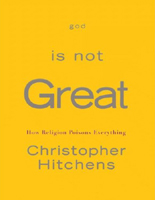
Recently naturalized American citizen Christopher Hitchens finds a publisher (Jonathan Karp’s newly minted Twelve Publishers) to indulge his unbridled atheism and anti-religiosity. Personally, though I find reading Hitch (as his Oxford cronies Amis and Rushdie refer to him) amusing and stimulating on a broad array of subjects, this is one that I find least promising—as with recent tomes along the same vein by Sam Harris and Richard Dawkins.
Jack Miles, who among other writings has written a biography of God, observes:
God Is Not Great
A Handbook to Luck by Christina Garcia
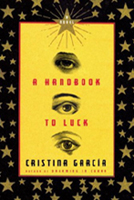
Christina Garcia’s first novel, Dreaming in Cuban, is a wonderful piece of fiction, and though her debut did set a high bar, her subsequent books have lived up to it. Her latest story weaves the lives of three kids—a Cuban exiled to Southern California, a slum dweller in San Salvador, and a surgeon’s daughter in Tehran—following them and their intersections from the late ‘60s through the ‘80s. Garcia tells a big story with little, ordinary people displaying her compassion and humanity.
» Read an excerpt from A Handbook to Luck
A Lie About My Father: A Memoir by John Burnside
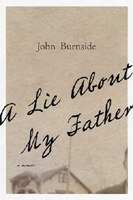
Nick Flynn’sAnother Bullshit Night in Suck City is a harrowing, compelling tale of a peculiar father-son relationship. Leave it to poet Flynn to extol another frightening and eerie story, Burnside’s A Lie About My Father. Andrew Solomon, who knows a little something about depression, blurbs:
It is cause for wonder that John Burnside could be the subject and object of so much sheer brutality and emerge to describe it with such nuanced lyricism. This book marks the triumph of the heart and mind over the intimate cruelty and despair of a dark childhood and the violent nullity of a wasted youth. It is unbearably upsetting, but also unbearably beautiful, written in the very thickness of inspiration, and full of strange wisdom.
Not for the faint of heart.
» Read an excerpt from A Lie About My Father
Fellow Travelers: A Novel by Thomas Mallon
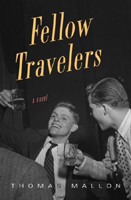
Thomas Mallon wrote the nonpareil historical novel Henry and Clara—about the couple who shared Abraham Lincoln’s box at the Ford theater the night of his assassination—and the well-constructed (as he likes to put it) farce Bandbox. In Fellow Travelers he uses the not-so-idyllic 1950s Washington, D.C., of McCarthy, Nixon, and Hoover as the backdrop for a love story between choirboy Timothy Laughlin and noblesse-obliging State Department lifer Hawkins Fuller—at a time when “lavender or pink” was the war cry of the rabid sector of the anti-Communist right. Despite the stranger-than-fiction story that unfolds in the headlines and congressional hearing rooms, Mallon manages to keep it from deluging the bittersweet and—finally—heartbreaking story he creates.
» Read an excerpt from Fellow Travelers
Alice Waters and Chez Panisse: The Romantic, Impractical, Often Eccentric, Ultimately Brilliant Making of a Food Revolution by Thomas McNamee

The title of this authorized biography (of which one rightfully ought to be skeptical) does tell the whole story—Alice Waters and her eatery, Chez Panisse, along with a handful of others, in which I would arguably place Julia Child and not arguably Jasper White—were the vanguard of what is now referred to as American cuisine. Having attended countless opulent and often pretentious restaurant openings in the ‘90s in Boston, I admittedly have a jaundiced view of nouveau foodie-ism. On the other hand, one should keep in mind that by then there was a fork in the road between the business of hospitality and food service—and the food itself. Since her Penguin Press claims “…Waters may be the most important figure in the culinary history of North America,” and Chez Panisse has a endless list of accolades, and even the New York Times has gotten into the act, anointing Waters “the mother of American cooking,” there is a story to be told here. I leave it you to decide if it’s your kind of story.
The Lucifer Effect: Understanding How Good People Turn Evil by Phillip Zimbardo
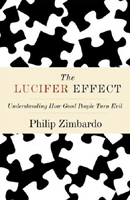
Big-time social psychologist Philip Zimbardo takes on this perplexing and fascinating issue, and this book and its complementary web site are serviceable attempts at getting to the answers. Zimbardo was the creator of the 1971 Stanford Prison Experiment, and here he tells the full story of the study, in which student volunteers were randomly divided into “guards” and “inmates,” and then placed in a mock prison environment. Shockingly, the study had to be abandoned within a week as unforeseen transformations in the volunteers took place. Random House places Zimbardo’s book alongside Hannah Arendt’s Eichmann in Jerusalem (which may mean a lack of understanding of that seminal work) and Stephen Pinker’s The Blank Slate. In any case, these are perennially unresolved moral concerns too frequently absent from public consideration and conversation.
The Rose Café: Love and War in Corsica by John Hansen Mitchell
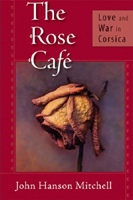
A few years ago Thomas McGuane wrote to encourage me to “interview someone in my locale” who he assured me was a very fine writer. John Hansen Mitchell is that writer—Hansen edits the Massachusetts Audubon Society magazine Sanctuary, and I have been trying to get to him ever since. (That’s another story, for which you will have to wait for my memoir-in-progress, Just Talking.) In the meantime, Mitchell has published Looking for Mr. Gilbert: The Reimagined Life of An African American and now this reminiscence from the 1960s on six months he spent in Corsica. Hansen’s oeuvre, if I may, is chock-a-block full of writing gems, observations, and contemplation. Maybe this is the year we get around to speaking. Stay tuned.
Hubbub: Filth, Noise and Stench in England, 1600-1770 by Emily Cockayne
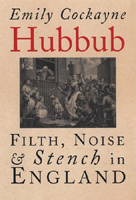
In addition to Kevin Sessums’s Mississippi Sissy and Sandor Katz’s The Revolution Will Not Be Microwaved, this book has one of my favorite titles in recent months. On the other hand, it is hard for me to see how a book of nearly 350 pages (almost 100 of which are devoted to index, endnotes, bibliography, and such) would have an audience beyond the most ardent historians of modern British history. But then again, Luc Sante’s Lowlife did not seem like a prospect of for a wide audience. But such are the quirks of social history and morbid fascinations that some subjects lift above their lowly origins. Francis Wilson has reviewed this book and reported that:
Hubbub
